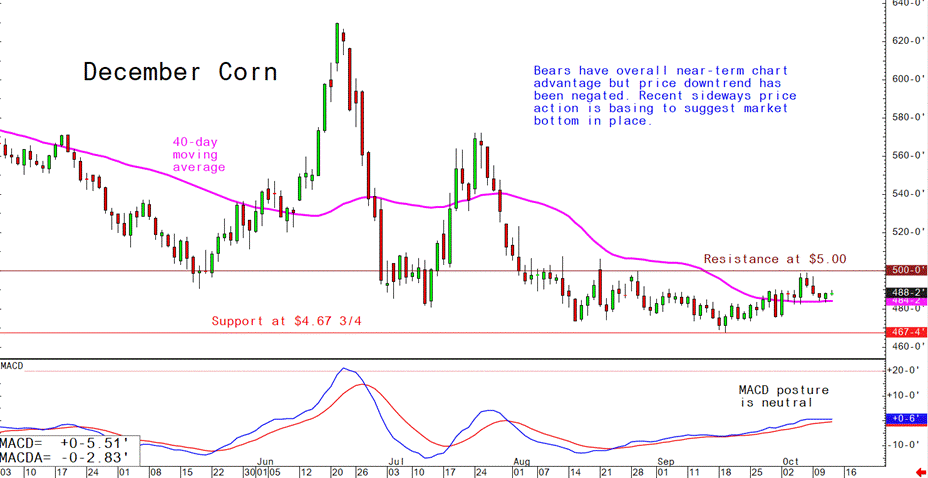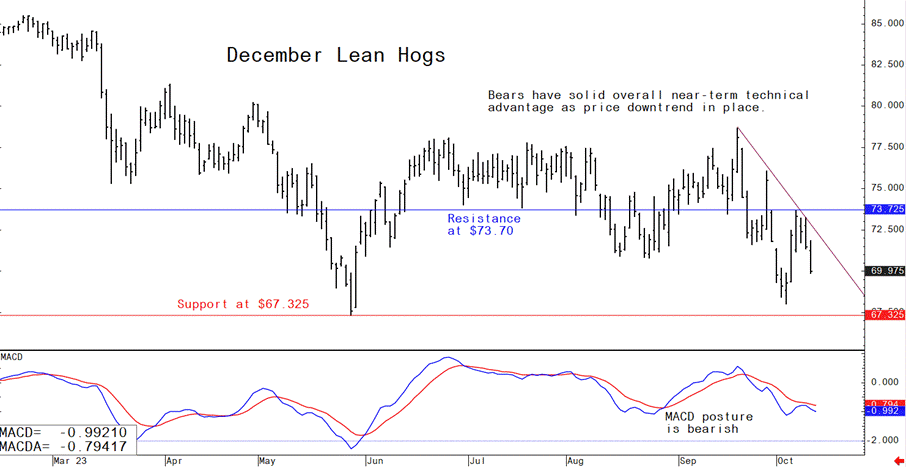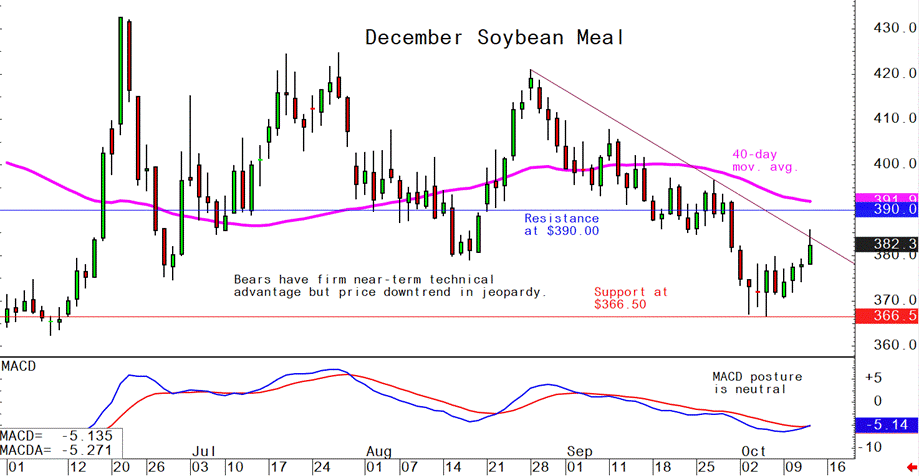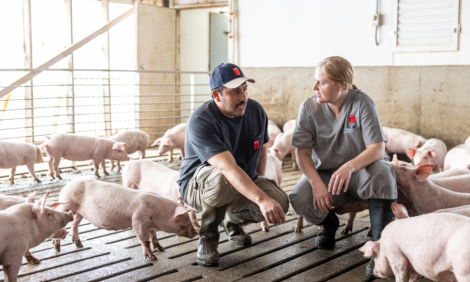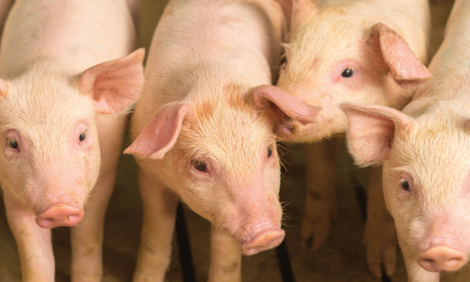



Pig outlook: Lean hog bears enjoying price downtrend
Analyst Jim Wyckoff shares pig news from around the worldDecember lean hog futures prices are presently in a three-week-old downtrend on the daily bar chart and the bears have the firm near-term technical advantage. The latest CME lean hog index is up 14 cents to $82.40 (as of Oct. 10), marking the first increase since Sept. 20. Still, the index remains in a steep seasonal decline and is down $10.55 from this time last year. US retail demand for pork has been solid. The rise in consumer demand is likely to keep pork prices higher than traders expect, as consumers have shifted a significant part of their demand to pork as retail beef prices remain near record highs.
Genus develops gene-edited pigs resistant to costly swine disease; awaits FDA approval for commercial sale
Animal genetics company Genus has utilized gene editing techniques to develop pigs resistant to porcine reproductive and respiratory syndrome (PRRS), a costly viral disease affecting hogs. Colombia has granted approval for the sale of these gene-edited pigs. Genus, based in Britain, anticipates a decision from the FDA in the first half of 2024, after which it plans to launch the pigs globally in a phased manner, contingent on receiving the necessary regulatory approvals.
These pigs mark the first instance of gene-edited pigs being commercially sold. Genus emphasizes a responsible and transparent approach to this development, working closely with stakeholders in the animal protein value chain.
More market access pushed. Besides the United States, Genus has sought regulatory approval for these pigs in countries such as Canada, China, Japan, Mexico, Brazil, and others.
PRRS imposes significant economic costs on the hog industry in the U.S. and Europe, amounting to an estimated $2 billion annually, according to Genus. To create pigs resistant to PRRS, Genus scientists employed gene editing to remove a specific segment of swine DNA responsible for encoding a protein used by the virus to enter pig cells.
This achievement follows the FDA's approval of a genetically modified pig for both food and human therapeutics in late 2020, which prevents the production of a sugar causing allergic reactions in some individuals. TFDA has also given the green light to fast-growing genetically modified AquAdvantage salmon in 2015 and gene-edited "slick" cattle with short hair, potentially better suited to tolerate hot weather, in 2022.
Smithfield to close North Carolina pork plant but transfer production to another site
Smithfield Foods will close its Charlotte, North Carolina, pork-processing plant and transfer production to its Tar Heel, North Carolina, facility to increase efficiency and better utilize existing capacity. Tyson and Perdue Farms are also shuttering some plants due to declining demand and persistent cost challenges.
U.S. pork exports maintain steady performance, led by strong demand in Mexico
In August, U.S. pork exports remained steady compared to the previous year, with robust demand from Mexico playing a crucial role, according to data from the USDA and the U.S. Meat Export Federation (USMEF). However, the export value dipped slightly. Beef exports, on the other hand, were lower than the substantial totals recorded in August 2022 but showed signs of improvement compared to July.
In detail, August pork exports amounted to 226,519 metric tons (mt), which was on par with the previous year. However, the export value decreased by 1.5% to $649.5 million. Over the first eight months of 2023, pork exports were 11% higher than the same period the previous year, totaling 1.91 million mt and valued at $5.32 billion, representing a 9% increase.
Mexico's significant demand for U.S. pork was highlighted, with USMEF President and CEO Dan Halstrom emphasizing its crucial role in generating revenue for the U.S. pork industry. Moreover, demand for U.S. pork was growing in other Western Hemisphere destinations, and gains were being achieved in various Asia-Pacific markets.
Major meatpacking plants in the U.S. shut down due to slipping demand and rising costs, affecting small town economies
Tyson, Perdue Farms, and Smithfield Foods are shuttering their plants across the U.S. due to declining demand and persistent cost challenges. This move is causing economic concerns for small towns where these meatpacking facilities serve as significant employers, customers, and essential contributors to the local tax base, the Wall Street Journal reports.
Tyson is working to assist displaced workers in finding new employment opportunities and highlights its substantial annual economic impact on the communities it serves, estimated at over $27 billion.
The next week’s likely high-low price trading ranges:
December lean hog futures--$67.325 to $73.00 and with a sideways-lower bias
December soybean meal futures--$366.50 to $397.50, and with a sideways bias
December corn futures--$4.67 3/4 to $5.00 and a sideways bias
Latest analytical daily charts lean hog, soybean meal and corn futures
